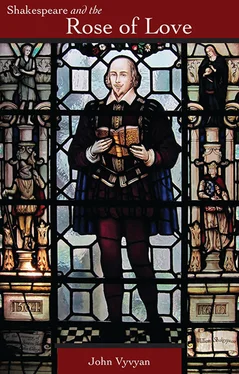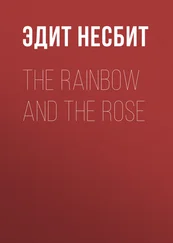When Berowne has blown his bubble of censorious hypocrisy to its maximum, Costard the clown enters, with Jaquenetta. She is carrying the sonnet that should have been delivered to Rosaline, and she naively hands it to the king. He orders Berowne to read it aloud. Instead of doing so, Berowne tears it up:
A toy, my liege, a toy: your Grace needs not fear it.
LONGAVILLE: It did move him to passion, and therefore let’s hear it.
DUMAIN (gathering up the pieces): It is Berowne’s writing, and here is his name.
BEROWNE (to Costard): Ah, you whoreson logger-head! you were born to do me shame…
Guilty, my lord, guilty; I confess, I confess.
And then to them all:
Sweet lords, sweet lovers, O, let us embrace!
As true we are as flesh and blood can be:
The sea will ebb and flow, heaven show his face;
Young blood will not obey an old decree.
It is not Berowne, but Shakespeare, who has whipped hypocrisy – but only with mirth. The lords are now agreed that their ‘guilt’ is equal, and that none of them has the moral right to condemn another. Once again, a principle has been established in comedy which will be used in tragedy with tremendous power.

So far, the young men have discerned nothing but the surface of love, and their ensuing conversation looks like a return to the ‘liver-vein’ – pure, pure nonsense. Each maintains that his own mistress is ‘heavenly’, but that no other qualifies for this distinction. Shakespeare may be mocking the common notion of lovers that their sweethearts are all divine exceptions; but possibly, for even in a light context an under-meaning is not to be ruled out, he may be seeing each of these ladies as a dual figure – as a woman of flesh and blood, and as a symbol. He does this so frequently in a serious way, that even here, I think, it is the correct explanation.
This idea of the duality of love – mortal form and eternal essence – is not, of course, his own. We might call it a convention, if that chilly word were not so inadequate for something deeply felt, of the medieval ‘religion’ of love. Shakespeare owes much to this tradition, according to which the beloved is something more than herself: she has also a sacramental quality, partly revealing, partly veiling love’s transcendence.
As this principle is important, we must briefly digress. I apologize for breaking off to explore tributary streams; but unless we do so, the main river of Shakespearean thought may remain as mysterious as the Nile before its sources had been mapped; and the dual nature of heroines is a contribution from the past. The idea is expressed in a variety of ways by medieval poets. Dante speaks of, ‘ La seconda bellezza che tu, cele ’, *the second beauty that is concealed within you. Chrétien de Troyes shows his hero worshipping his mistress, in a way that can be understood only if we see that the act is conceived as a sacrament; otherwise it would be a blasphemy, which it certainly is not. And in Roman de la Rose , to Chaucer’s translation of which Shakespeare was, I believe, indebted, the symbolic nature of this devotion is made clear by introducing the god of love as well as the lady. Even with these poets, of course, the idea is not original; but we cannot pursue an indefinite regression, and from our present point of view they may be treated as origins.
The Romaunt of the Rose appears to me to be a pervasive presence in Shakespeare’s early love-plays. This Chaucerian version of part of the old French Roman de la Rose was first printed by William Thynne, in 1532, and it is likely that Shakespeare used that edition. *It is true that the ideas it presents could have reached him indirectly; but as Thynne’s edition was available, it is a fair assumption that he found them there.
At the moment, I wish only to establish the relationship, in The Romance of the Rose , between the god of love, the lover and the lady. When the hero of the poem is pierced by the five arrows – that is to say, when he falls in love – it is not to the lady that he kneels. In fact he turns away from her, to the god of love who commands his service. From this moment, more than courtship is involved. Even if the lady were to die – as Dante’s Beatrice did – the lover would still be a person dedicated to an ideal. Once smitten, he addresses the god as his liege lord:
And I answered ful humbly
Gladly sir / at your byddyng
I wol me yelde in al thyng
To your seruyce I wol me take
For god defende that I shulde make
Ayen your byddyng resystence
I wol not don so great offence
For if I dyd / it were no skyll
Ye may do with me what ye wyll
Save or spyll / 1953
And if ye lyst of me to make
Your prisoner / I wol it take
Of herte and wyll fully at gre
Holy and playne I yelde me… 1970
He then kneels, and would have kissed the god’s feet, but he is prevented from doing this. He has made the right answer; and therefore Love kisses him on the mouth, telling him this is a special grace:
For curteys / and of fayre manere
Well taught / and ful of gentylnysse
He muste ben / that shal me kysse 2006
For I am of the selfe manere
Gentyll / curteys / meke / and fre… 2021
What, we may ask, has all this to do with falling in love? Simply that the point of view of the Middle Ages was a religious one. From the moment when the young man in the poem becomes the lover, he embraces a new way of life; and this will change his relationship to everything. We tend to confine love to a concentration of emotion – sometimes of devastating passion – on an individual; but for the medieval lover this might be only a beginning. The conclusion might be the Divina Commedia , or some other diffusion of love’s essence through a wider sphere. It is therefore necessary to recognize the god, or his equivalent, as well as the lady. And having done that, it is not illogical to regard love as a power which brings harmony to a discordant world. But the god is, of course, a convenient symbol for a principle – in Shakespeare’s view, the sovereign principle – which ultimately resides in the self. So it need not surprise us that to be true to oneself and to be true to love become, in Shakespeare’s usage, interchangeable expressions.
It may be thought inopportune to sound this deeper note at a moment when Shakespeare is entertaining us with light music. But I do so to emphasize a point: the dual nature of his heroines – and of some other characters as well – is not confined to the portentous plays, tragedies and resolutions of tragedy; it is safer, in fact, to look on it as an habitual element in his technique, and even in apparently unlikely places to bear it in mind. Richard David says of Love’s Labour’s Lost that, ‘beneath the shimmering surface the waters are deep’. *And we may accordingly suspect the presence of those devices that Shakespeare uses to explore the deeps.
This suspicion is strengthened when we find that two, at least, of the men begin with a debased idea of love. In later plays, this becomes an infallible indication with Shakespeare that a man is on the wrong track – Hamlet, Angelo and Othello, for instance, blacken the women who love them, and this is a necessary step in their fall. The germ of this perversion is clearly present in Love’s Labour’s Lost , notably in the sub-plot. Armado says of Jaquenetta:
I do affect the very ground, which is base, where her shoe, which is baser, guided by her foot, which is basest, doth tread…. Love is a familiar; Love is a devil; there is no evil angel but Love.
And Berowne says of Rosaline:
Читать дальше












